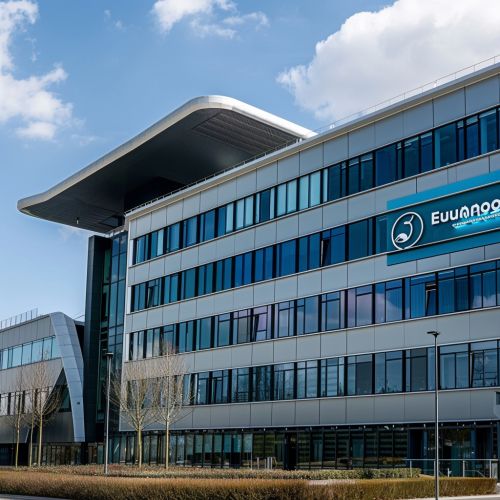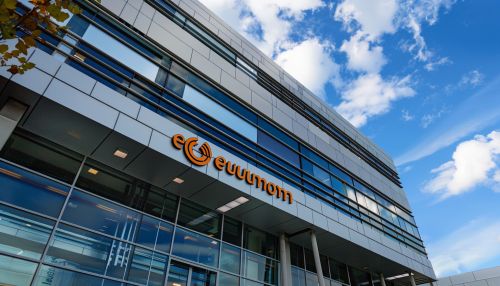European Atomic Energy Community
Overview
The European Atomic Energy Community (Euratom) is an international organization established by the Treaty of Rome in 1957. Its primary purpose is to create a specialist market for nuclear power in Europe, developing nuclear energy and distributing it to its member states while selling the surplus to non-member states.
History
Euratom was created in 1957, concurrently with the European Economic Community (EEC), following the Treaty of Rome. The founding members were Belgium, Germany, France, Italy, Luxembourg, and the Netherlands. The same member states formed both organizations, and they shared the same courts and the European Parliament.
Objectives
Euratom's main objectives are to provide a secure supply of nuclear energy to member states, ensure high safety standards, and prevent nuclear materials intended for civilian use from being diverted to military use.
Structure
Euratom is governed by the European Commission, which is responsible for proposing legislation, implementing decisions, upholding the Euratom Treaty, and the day-to-day running of the Euratom. The Commission is overseen by the European Parliament and the Council of the European Union.
Membership
Euratom membership is composed of all 27 member states of the European Union. It also has cooperation agreements with other countries outside the EU and is part of several international organizations related to nuclear energy.
Nuclear Research
Euratom has been instrumental in the development of nuclear research within the EU. It has established several research centers, including the Joint Research Centre (JRC), which conducts research into nuclear safety, security, and radiation protection.
Nuclear Safety and Security
Euratom is responsible for the safety and security of nuclear materials within its member states. It establishes uniform safety standards and ensures that they are applied correctly.
Supply Agency
The Euratom Supply Agency ensures the regular and equitable supply of ores, source materials, and special fissile materials in all member states.
Nuclear Fusion
Euratom is also involved in research into nuclear fusion, a potential source of almost limitless, waste-free energy. It is a major contributor to the International Thermonuclear Experimental Reactor (ITER) project.
Criticisms and Controversies
Euratom has faced criticism for its focus on nuclear power, which some argue is not a sustainable or safe form of energy. It has also been criticized for its lack of transparency and democratic accountability.
Future
The future of Euratom is tied to the future of nuclear energy in Europe. With several member states planning to phase out nuclear power, the role of Euratom may change significantly in the coming years.
See Also


